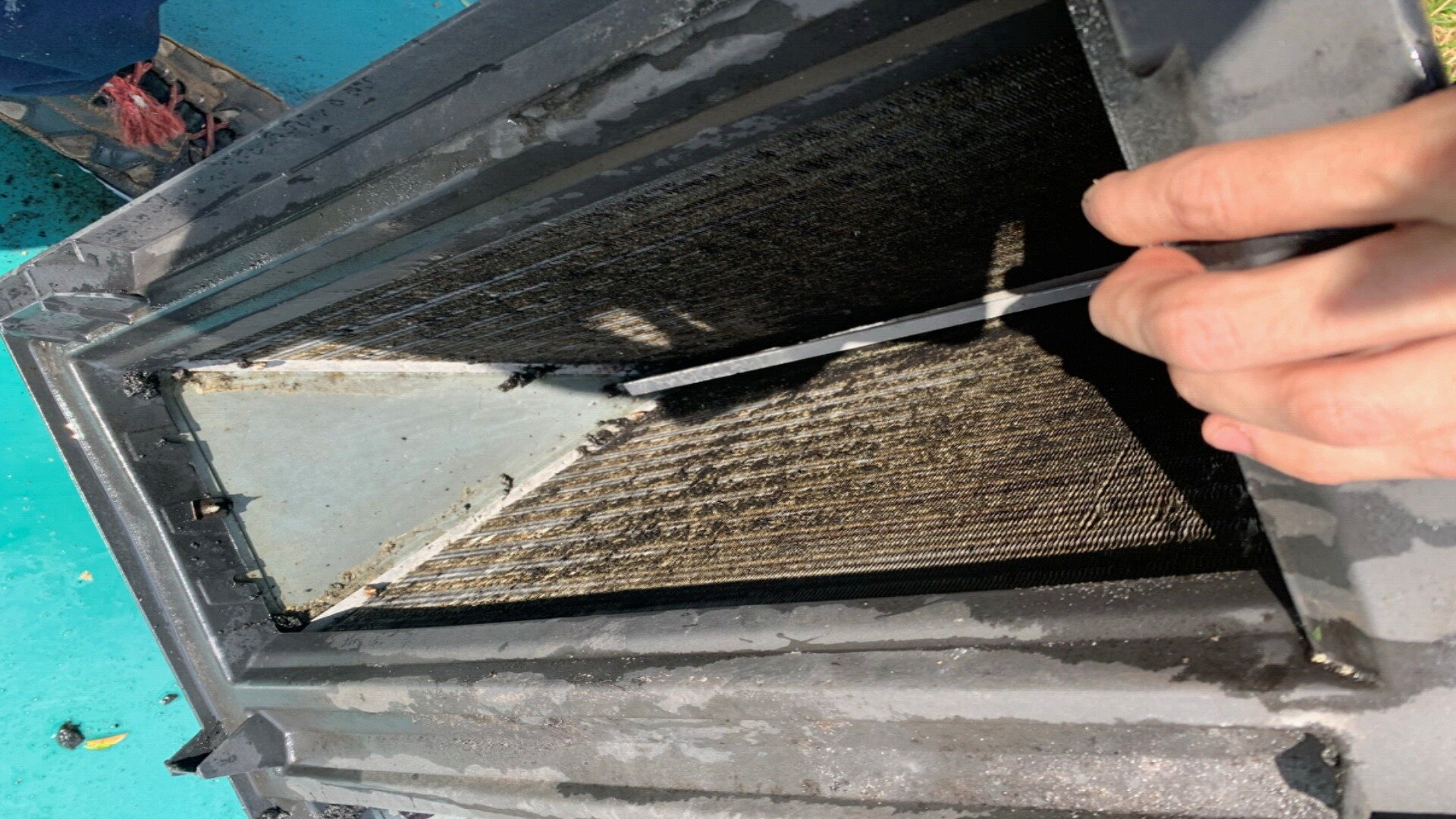
At Enersol, our air conditioning services include professional coil cleaning and maintenance to keep your system running efficiently. Is your air conditioner not cooling your home as efficiently as it used to? Have you noticed your air conditioning unit running for longer periods to maintain the set temperature? If so, a dirty coil could be to blame.
As time goes by, air conditioner coils tend to gather dust, dirt, pollen, and other particles. Learn more about benefits of ducted air conditioning systems. This build-up can cut airflow and lessen the system’s ability to cool effectively. Regularly cleaning your AC’s coils is crucial to ensure it runs efficiently and smoothly.
In this article, you’ll find tips on how to safely clean both the outdoor condenser coil and the indoor evaporator coil yourself. We’ll also cover when it might be a good idea to call in a professional for a deep clean or even consider replacing the coil. Keeping your AC coil clean can really boost performance and help you dodge costly repairs.
What Causes A.C. Coils to Get Dirty?
Over time, air conditioner coils can become clogged with all sorts of contaminants. The usual suspects causing dirty AC coils include:
Dust and Debris
Dust, dirt, and other airborne particles are constant in most environments. As air circulates through the system, this debris builds up on the condenser and evaporator coils, blocking optimal airflow. Construction dust, vehicle exhaust, and seasonal pollen can quickly coat coils.
Pollen and Pet Dander
Tiny pollen grains from trees and plants easily stick to A.C. coils as warmer air is pulled inside. Pet dander from cats, dogs, and other furry pets also collects on coils as air circulates. These tiny particles clump together, restricting airflow.

Mould, Bacteria and Biofilm
A.C. systems’ damp, enclosed space can promote mould, bacteria, and biofilm growth. Excess humidity, condensation, and coil damage allow this organic build-up. It creates a sticky film on coils that captures even more contaminants.
By understanding the most common sources of coil contamination, you can take steps to properly clean your A.C. coils and maintain a healthy, efficient system.
Impacts of a Dirty AC Coil
A dirty air conditioner coil can seriously impact performance and shorten its lifespan. When airflow is restricted due to clogged coils, the system has to work overtime to remove heat and humidity.
This leads to reduced cooling capacity, higher energy bills, and struggling compressor operation. A severely contaminated evaporator coil can even freeze up and stop cooling altogether.
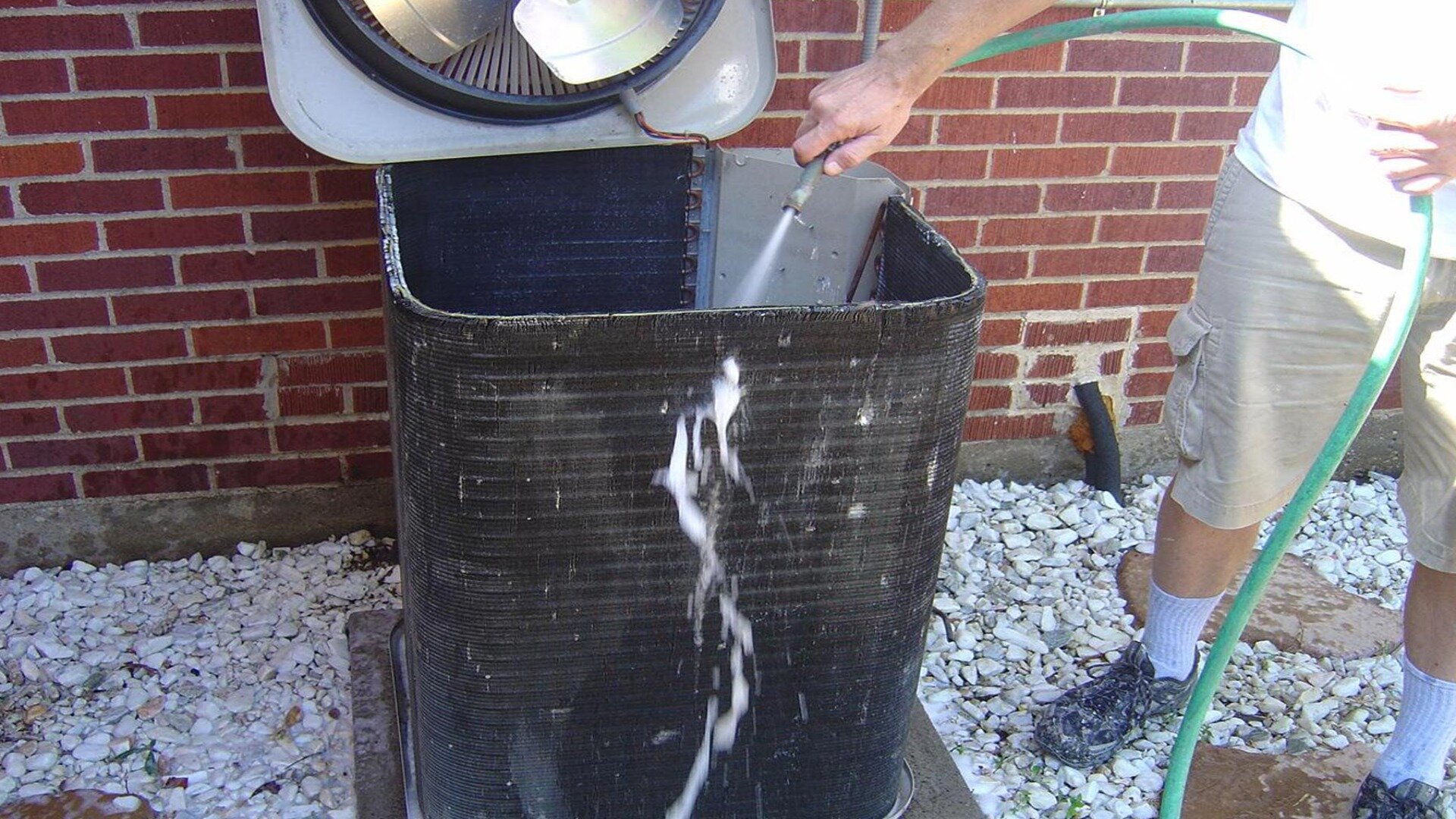
Dirt debris can also cause corrosion and deterioration of the coil over time. The strain of working with limited airflow and heat transfer puts added stress on A.C. components.
This accelerates wear and can lead to premature breakdowns or the need for costly repairs. Proper coil cleaning provides benefits beyond cleaner air: it optimises efficiency, avoids damage, extends equipment life, and saves energy costs.
Cleaning the Condenser Coil
Cleaning the outdoor condenser coil is a key maintenance task, and doing it safely is crucial. Start by switching off the A.C. unit at the breaker panel or unplugging it.
Remove any protective casing surrounding the coil assembly. Using a soft brush attachment, gently brush debris off the coil fins. Apply a condenser coil cleaner or mild spray, such as soap and water.
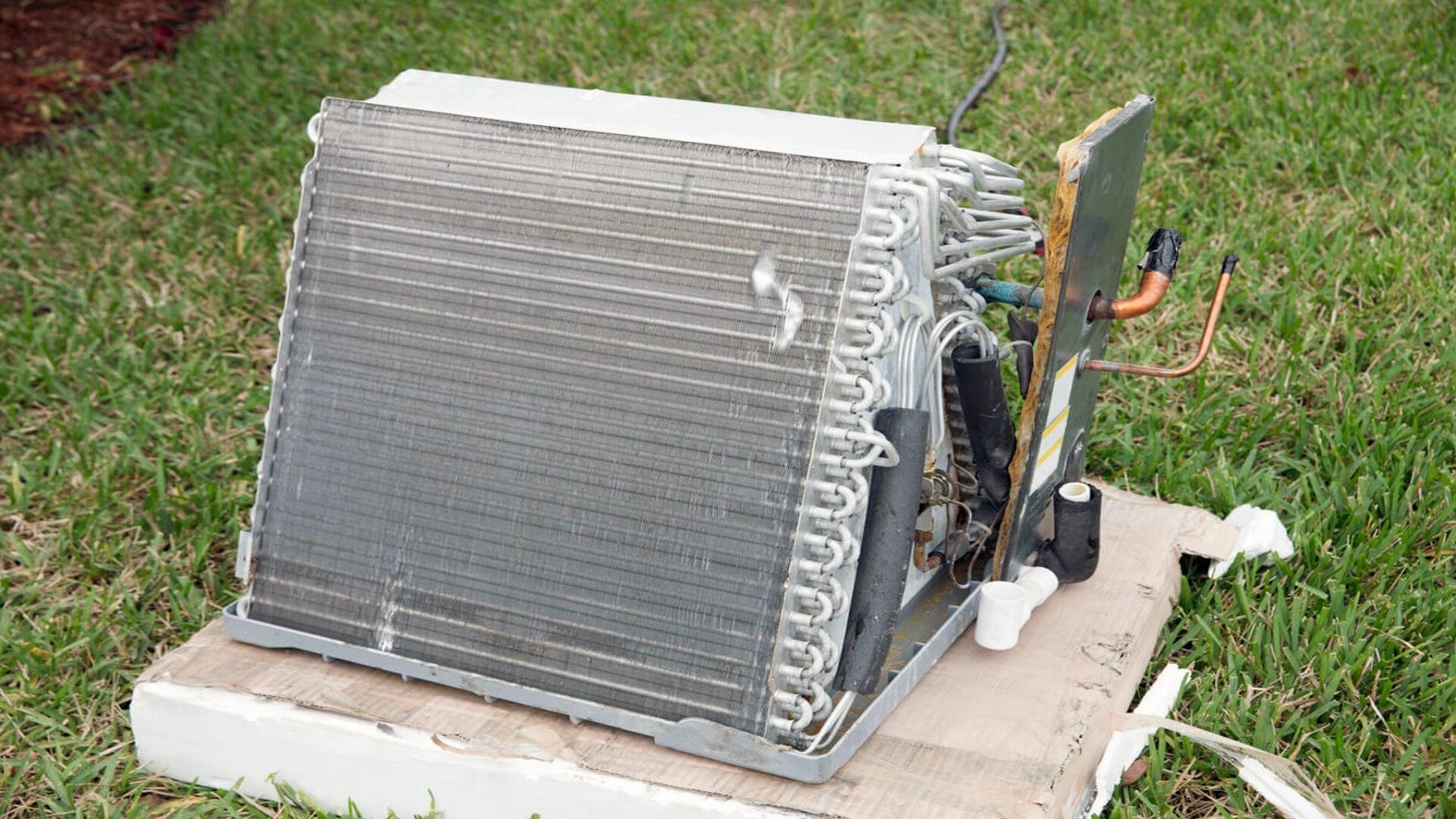
Avoid harsh chemicals. Rinse thoroughly from top to bottom without bending the fins. A garden hose on a light setting works well. Let the coil fully dry before restoring power.
For bent fins, use a fin comb tool to straighten them carefully. This process removes damaging debris build-up and restores proper airflow through the condenser coil for efficient operation.
Cleaning the Evaporator Coil
Cleaning the evaporator coil inside your home is a bit more complex. Like with the condenser, your first step should always be to disconnect the power to the air handler.
Remove any access panels to expose the coil. Use a specialised foaming coil cleaner formulated for evaporators and apply it liberally to break up contaminants. Let it soak for a few minutes.
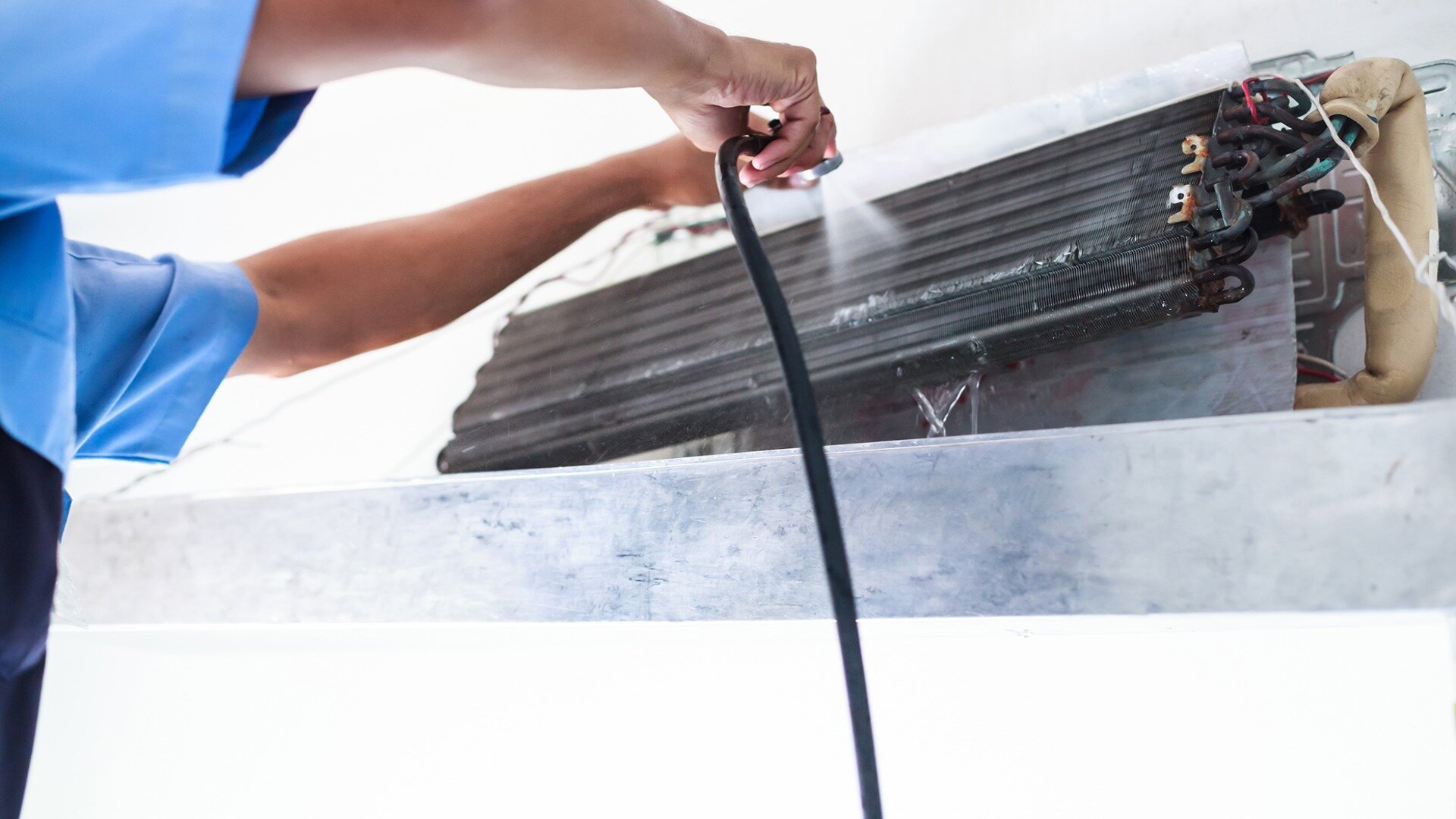
Then, rinse thoroughly with distilled water to prevent mineral deposits. A pump sprayer works best for this. If mould is present, use a disinfecting coil cleaner to sanitise and deodorise the coil.
When dry, replace any panels and restore power. An evaporator coil comb helps straighten bent fins post-cleaning. Take care not to damage the delicate coil fins. Proper cleaning removes debris build-up and maintains proper airflow through this key A.C. component.
When to Consider Replacing Your Condenser Coils
Sometimes, condenser coils get so clogged or damaged that cleaning just won’t cut it. Look out for signs like extensive corrosion, cracks or holes in the tubing, severe fin damage, frequent clogs, persistent restricted airflow even after cleaning, refrigerant leaks, or if the coils are over a decade old.
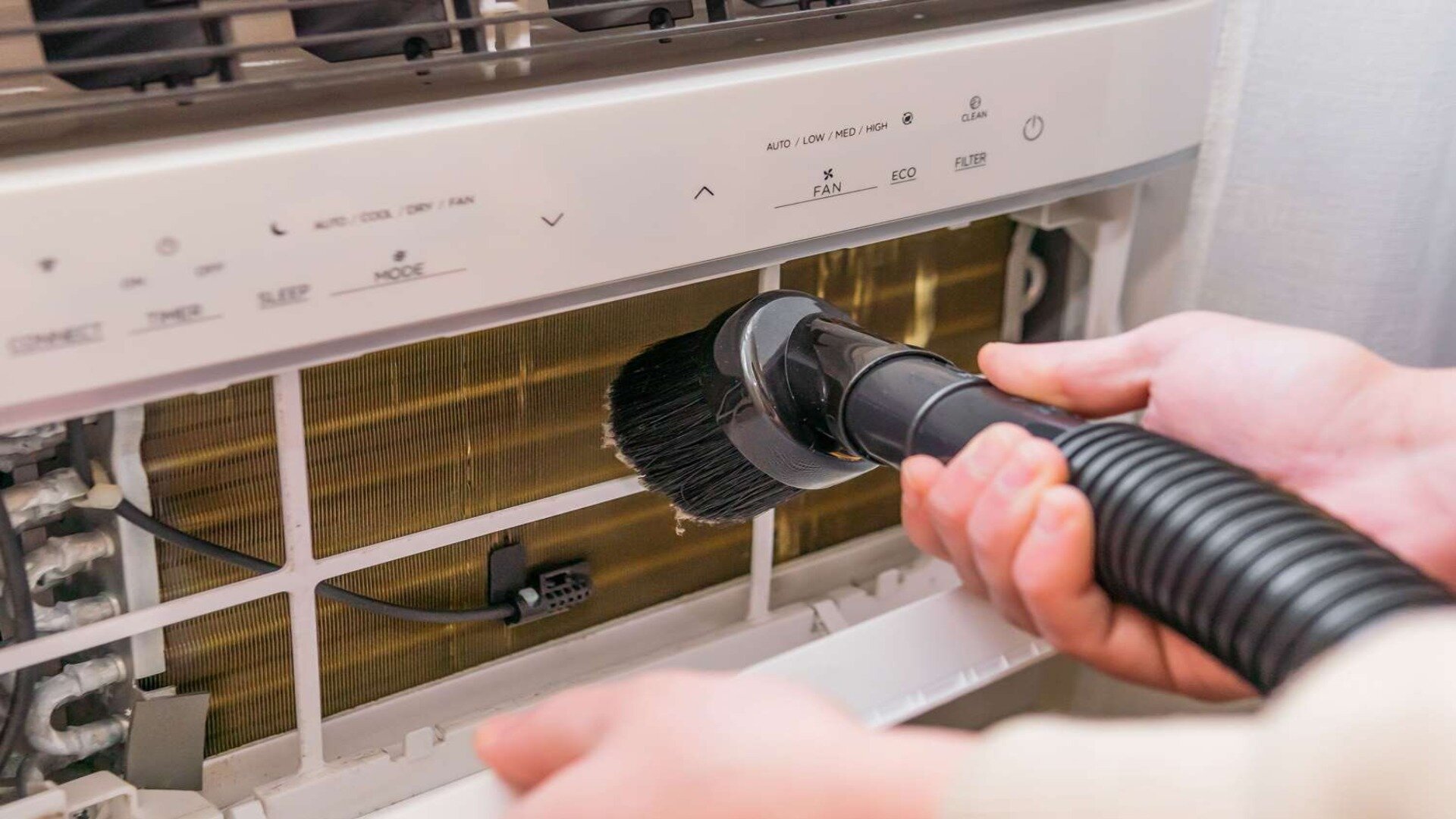
Replacement is also recommended if the air conditioning system is old and inefficient. Newer coils are more durable and enhance performance. Upgrading to an aluminium coil can eliminate corrosion issues.
Consult an HVAC technician to examine your coil, check refrigerant levels and airflow, and determine if replacement is the best solution. Properly sizing and installing a new coil that matches your system can optimise cooling efficiency and extend the life of your AC unit.
Keep Your A.C. Cool
Keeping your A.C. coils clean optimises cooling capacity and energy efficiency. While you can often handle condenser cleaning, evaporator coils and deep cleaning are best left to qualified HVAC professionals.
Contact the team at Enersol Electrical for expert coil inspection, cleaning, and repairs. Their licensed technicians service all makes and models of air conditioner systems.
Reach out for any coil maintenance needs or if your AC is underperforming—Enersol Electrical is here to help restore peak operation. With proper coil care, your air conditioner will run cleaner, more relaxed and more efficiently this season.